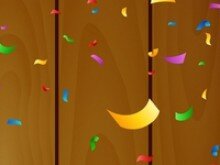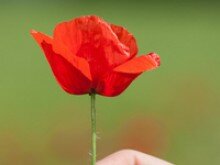Welcome to Indian Poetry – August 2009
Poets aren’t the only ones who use words. The rub is that everyone does. But poets are the ones still expected to make magic out of them.
How do poets view the challenge? How do they view the raw material of their craft, the currency of their trade? How do they deal with the fact that their medium hardens every moment – through use and abuse – into cliché? How exactly do poets view words? With exasperation? Mistrust? Fear? Fascination? Despair? All of the above?
In this edition, four poets train their spotlight on the theme in excitingly varied ways.
Vaidehi, a senior Kannada poet, nurses no romantic illusions about words. In her poem, ‘She, He and Language’, she takes an ironic look at what the same set of words can mean to a man and a woman: “She said, hungry, thirsty/ He said, eat well, drink./ She wept./ He smiled.” In this most intimate of relationships, words are collapsed bridges. Disturbingly, they have not just failed to bring people closer; they may actually have estranged them. Words are also exchanged between Shiva and Parvathi in another poem. But it is clear that the real communication in that primordial union is essentially non-verbal. Between surface and subtext is not just a gap; it’s an empty, yawning chasm.
Can it ever be bridged? Vaidehi leaves us uncertain on that score. She suggests, instead, that the art of cooking up a pot of rasam – that delicious south Indian soup – is superior to the art of whipping up a poem. There’s less of a chance of being misunderstood, certainly.
For young Oriya poet Bharat Majhi, words have turned emblematic of hollow promises, fluffy rhetoric, mere bombast. In his poetry, he rejects their duplicity, their cunning, their readiness to pander to self-serving masters. The poet’s only weapon in this verbal miasma is the scalpel of satire. Words, he says, have to be used to puncture the silences of those who have been gagged – and those who have colluded in their own gagging. And, after all, only words can be used to show up words.
Jerry Pinto, a Mumbai-based writer in English, would agree that words come easy – much too easy. “Words, words, words, words”, he says, and adds, “Words, words, words, words, words”. Except that he refuses to locate the enemy out there alone. The poet as shaman and oracle has been tamed and trivialised by a culture of utility and terminal triteness. But the poet knows that in some way he has played his part in this betrayal. The healer acknowledges his own toxicity. “Turdwords, wordturds,” he calls them.
At the same time, probably all the writers would agree with Assamese poet Jiban Narah that words remain – for all their tantalizing betrayals – vital. Their resonant echoes, their bewildering ambiguities, their mysterious ability to tell the truth without resorting to fact – these remain the reason we return time and again to poetry. Yes, words can be dodgy, promiscuous, dishonest. But as Narah points out, that doesn’t diminish their capacity to seduce us. “Aware that the birds aren’t trees/ yet you plant birds,” he says in an enigmatic koan-like poem.
It’s true that the final destination is the continent that underlies all language: “The silent land forever”, in Narah’s words. None would disagree. It is a land with which shamans and poetasters alike must make their peace.
But until then, thankfully, there are words. And there is poetry – capable, at times, of suddenly surprising us, of resembling “clear rasam on a seemingly dead/ coalfire, simmering/ still fresh even at night”.
(And while on the subject of verbal magic, don’t forget to listen to four new additions to our audio archive: Jiban Narah in Assamese, Ajmer Rode in Punjabi, Udayan Vajpeyi in Hindi and Hemant Divate in Marathi.)
In this edition, four poets train their spotlight on the theme in excitingly varied ways.
Vaidehi, a senior Kannada poet, nurses no romantic illusions about words. In her poem, ‘She, He and Language’, she takes an ironic look at what the same set of words can mean to a man and a woman: “She said, hungry, thirsty/ He said, eat well, drink./ She wept./ He smiled.” In this most intimate of relationships, words are collapsed bridges. Disturbingly, they have not just failed to bring people closer; they may actually have estranged them. Words are also exchanged between Shiva and Parvathi in another poem. But it is clear that the real communication in that primordial union is essentially non-verbal. Between surface and subtext is not just a gap; it’s an empty, yawning chasm.
Can it ever be bridged? Vaidehi leaves us uncertain on that score. She suggests, instead, that the art of cooking up a pot of rasam – that delicious south Indian soup – is superior to the art of whipping up a poem. There’s less of a chance of being misunderstood, certainly.
For young Oriya poet Bharat Majhi, words have turned emblematic of hollow promises, fluffy rhetoric, mere bombast. In his poetry, he rejects their duplicity, their cunning, their readiness to pander to self-serving masters. The poet’s only weapon in this verbal miasma is the scalpel of satire. Words, he says, have to be used to puncture the silences of those who have been gagged – and those who have colluded in their own gagging. And, after all, only words can be used to show up words.
Jerry Pinto, a Mumbai-based writer in English, would agree that words come easy – much too easy. “Words, words, words, words”, he says, and adds, “Words, words, words, words, words”. Except that he refuses to locate the enemy out there alone. The poet as shaman and oracle has been tamed and trivialised by a culture of utility and terminal triteness. But the poet knows that in some way he has played his part in this betrayal. The healer acknowledges his own toxicity. “Turdwords, wordturds,” he calls them.
At the same time, probably all the writers would agree with Assamese poet Jiban Narah that words remain – for all their tantalizing betrayals – vital. Their resonant echoes, their bewildering ambiguities, their mysterious ability to tell the truth without resorting to fact – these remain the reason we return time and again to poetry. Yes, words can be dodgy, promiscuous, dishonest. But as Narah points out, that doesn’t diminish their capacity to seduce us. “Aware that the birds aren’t trees/ yet you plant birds,” he says in an enigmatic koan-like poem.
It’s true that the final destination is the continent that underlies all language: “The silent land forever”, in Narah’s words. None would disagree. It is a land with which shamans and poetasters alike must make their peace.
But until then, thankfully, there are words. And there is poetry – capable, at times, of suddenly surprising us, of resembling “clear rasam on a seemingly dead/ coalfire, simmering/ still fresh even at night”.
(And while on the subject of verbal magic, don’t forget to listen to four new additions to our audio archive: Jiban Narah in Assamese, Ajmer Rode in Punjabi, Udayan Vajpeyi in Hindi and Hemant Divate in Marathi.)








